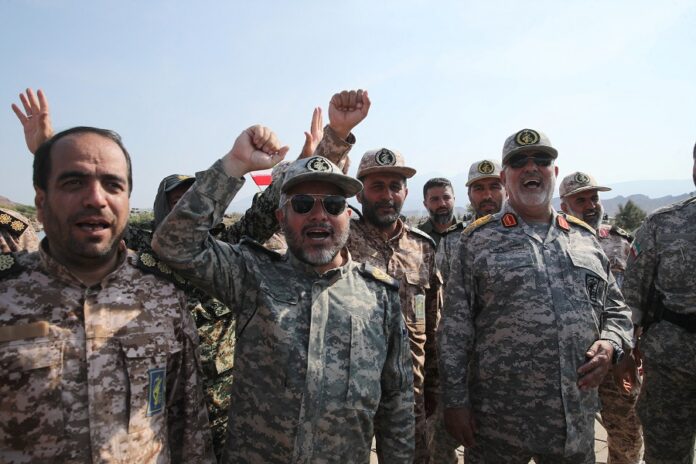
DUBAI, Nov 25 (Reuters) – Iran‘s Revolutionary Guards have built up their presence in restive Kurdish regions, state media reported on Friday amid a crackdown on mass protests, as video showed dozens of people demonstrating in minority Baluch areas of the southwest.
The mass demonstrations that erupted after the Sept. 16 death in custody of 22-year old Kurdish woman Mahsa Amini spread rapidly across the country but have been most intense in areas populated by the mainly Sunni Muslim ethnic minorities.
The unrest has posed one of the biggest challenges to Iran‘s Shi’ite clerical rulers since they came to power in the 1979 Islamic Revolution, with previous bouts of sustained protest eventually being crushed.
A prominent Baluch Sunni Muslim cleric, Molavi Abdolhamid, used his Friday prayers to call for an end to the repression of protests through arrests and killings.
“The people’s protest has shown that the policies of the last 43 years have reached a dead end,” his website quoted him as saying.
Some in the West think that only young generation or those women who don’t want to wear hijab are part of the ongoing uprising in Iran.
It’s wrong. With or without hijab these people chant “Death to Dictator”.
We have common demand; Islamic Republic must be gone.#MahsaAmini pic.twitter.com/BxbjHist5C— Masih Alinejad ?️ (@AlinejadMasih) November 25, 2022
More Revolutionary Guards armoured units and special forces were heading to the west and northwest border regions, home to the Kurdish minority, several state news agencies reported, after earlier reinforcements were announced on Sunday.
Iran Protests Have Caused Deaths of Staggering Number of Children
The semi-official Tasnim news agency showed a photograph of smiling Revolutionary Guards commanders standing on a military vehicle and saluting a long line of troops.
Iran has accused Western countries of orchestrating the unrest and accused protesters in ethnic minority regions of working on behalf of separatist groups.
It has escalated its crackdown in Kurdish areas, with the U.N. rights commissioner noting on Monday reports of more than 40 deaths in those areas over the previous week. On Tuesday Iran said it had struck a Kurdish group in northern Iraq.
Molavi Abdolhamid also used his sermon to denounce the reported abuse of detainees.
“Things are said about the mistreatment of women in the media that are heavy and I can’t bring myself to say,” he said, apparently referring to reports of alleged rapes of detained women.
MajidReza Rahnavard is indicted by the Islamic Republic on the meaningless charge of “belligerence against God” which for medieval Mullahs is reason for execution. They had beaten him up so much that he was injured in all the photos they published of him after arrest.#MahsaAmini pic.twitter.com/09Gq5Y44tX
— 1500tasvir_en (@1500tasvir_en) November 25, 2022
Several videos posted by social media accounts of activists and rights groups showed what they said were protests on Friday in several cities in Sistan-Baluchistan province near the borders with Pakistan and Afghanistan.
Videos showed dozens of men marching in the regional capital Zahedan, shouting slogans against Iran‘s supreme leader and the state’s Bassij militia and Revolutionary Guards, and chanting “Kurds and Baluch are brothers”.
Another video appeared to show demonstrators in Zahedan carrying a wounded protester.
Reuters could not immediately verify the authenticity of the videos.
Nov. 25, the Islamic Republic shooting at protesters in Zahedan, Sistan-Baluchestan.#MahsaAminipic.twitter.com/aievsJv27g
— 1500tasvir_en (@1500tasvir_en) November 25, 2022
The activist HRANA news agency also reported protests in Khash and Saravan in Sistan-Baluchistan.
The U.N. Human Rights Council, which on Thursday voted to start investigating Iran‘s crackdown, has demanded the authorities halt the violence.
(Reporting by Reuters Dubai newsroom; Writing by Angus McDowall, Editing by William Maclean)

